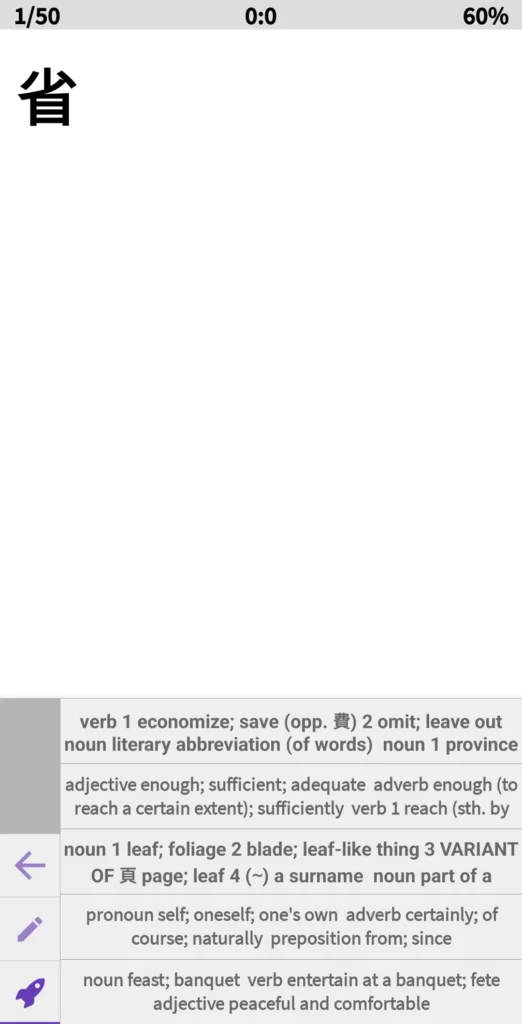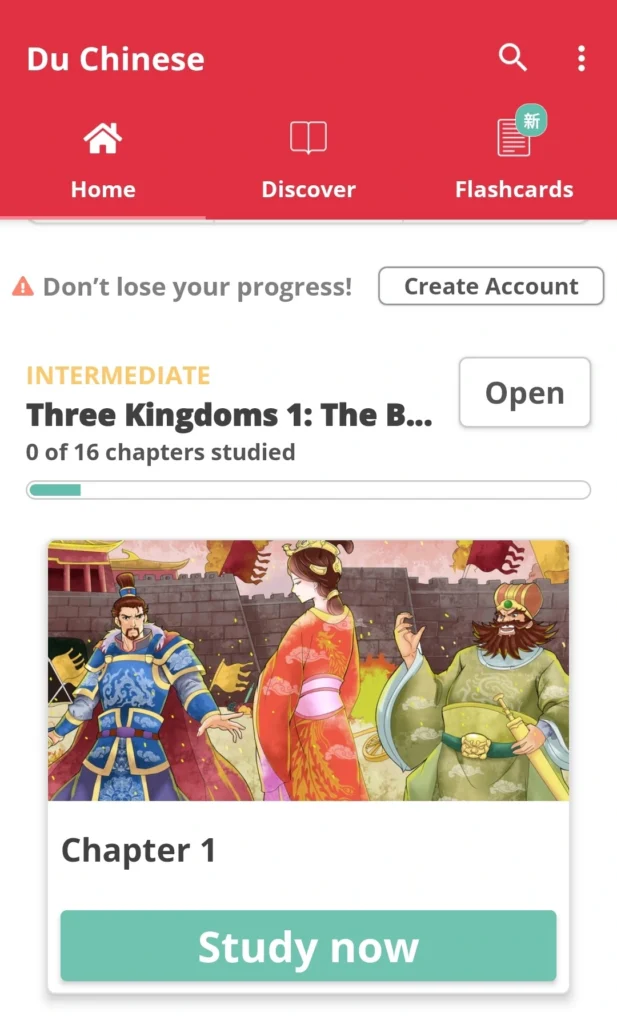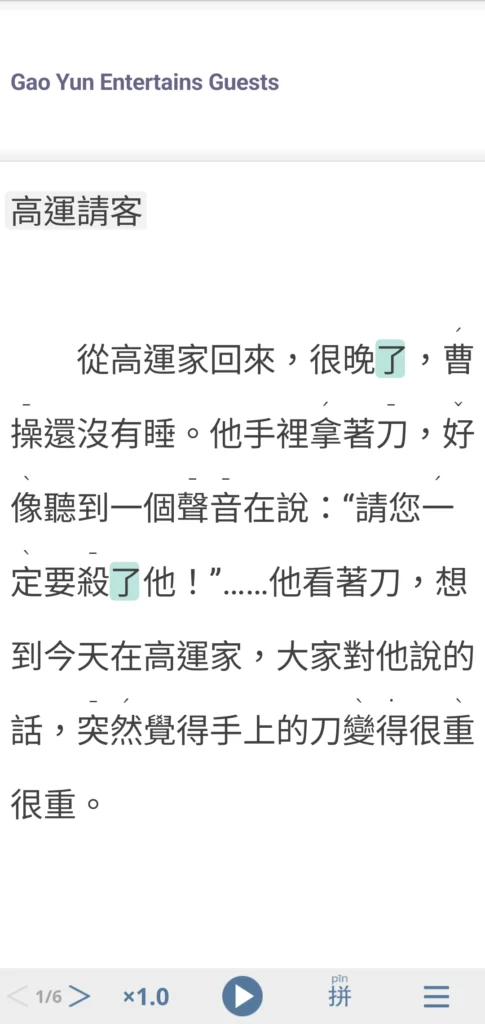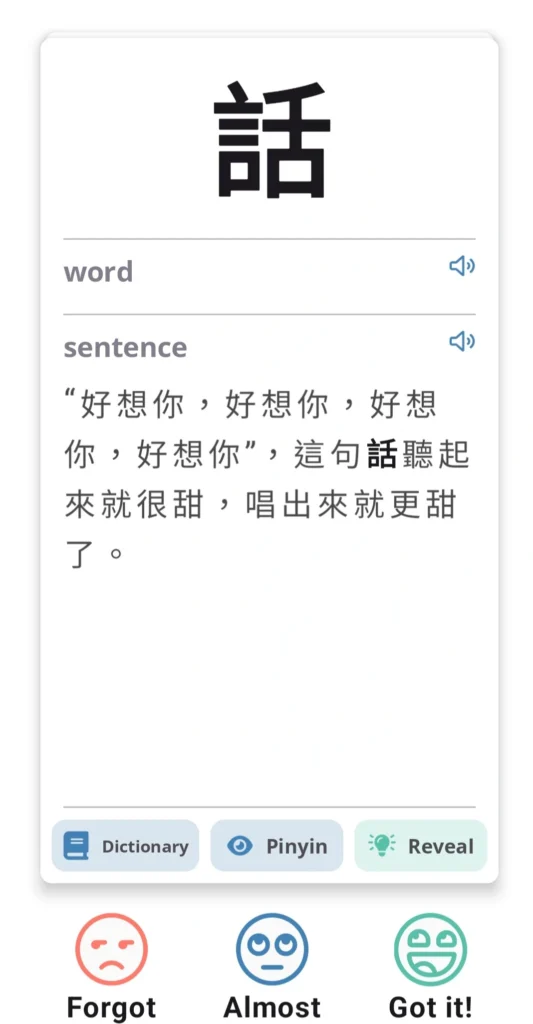I’m not a polyglot. Or someone who’s even fluent in reading, speaking, writing, or listening to Mandarin Chinese.
However…
I am a learner like you. Thus, I can relate to your struggle. If that’s why you’re here.
Regardless, you should find one tip or resource here to help you in your Mandarin journey.
I’ll provide various resources, apps, tools, and other sources I’ve used to help me learn Mandarin.
Table of Contents
How Long Will it Take for You to Learn Mandarin Chinese?
Some sources, like the Foreign Service Institute (FSI), claim it’ll take 2,200 hours (88 weeks or 1 year and 36 weeks) to reach native proficiency in Mandarin Chinese [1]. This depends on how much you study.
This is with active learning in a classroom. If you’re a passive learner like myself, who has been in and out of studying, reaching beginner-intermediate status could take more than 5 years.
Am I ashamed? Absolutely. The point of this guide is to prevent you from making the same mistakes as myself.
If you look at TOCFL’s website—the test for Mandarin proficiency in Taiwan—you’ll see varying numbers based on the amount of vocabulary learned:

Don’t let that table scare you too much, here’s another one that breaks down what you can do with each level:
With that in mind, you’d likely need to reach Level 1. But wait, the tables are different. The first table says “1,000” words for level 2. Whereas, level 1 on the second table shows “800 – 1,200” words.
Don’t take what’s written on these tables as gospel. Use them for reference and to help you build goals.
Is There a “Best” Way to Learn Mandarin?
Immersion. For most folks.
Hear me out…
More than 200,000 Mormons go abroad to “spread the gospel” in other countries. Many of these countries don’t have English as their primary language.
I asked wandering Mormons in Taiwan how they learned Mandarin, and one of them told me, “Just talk to people.”
In my experience, this has been true to some extent. The only way to memorize a language is by practicing it, and you practice it by talking.
Flashcards, apps, and books are great for learning the fundamentals. But eventually you’ll need to get out there and speak to people, which sucks for introverts.
That’s my problem. I rarely go out since I’m a freelancer. And I often worry that I won’t speak proper Mandarin when communicating with my wife.
I have been working on speaking more of it at home, though.
I also recommend looking into how the following professions and groups of people learn languages:
- CIA: Officers often need to operate undercover in foreign countries, where blending in and understanding the local language and culture are crucial.
- Polyglots: Their experiences in learning various languages can provide insights into effective techniques for rapid language acquisition.
- Diplomats and Embassy Staff: They often have to learn the language of their host country quickly to communicate effectively and build relationships.
- International Aid Workers: They need to learn the local language to understand the needs of the communities they serve.
- Military Personnel: They may need to learn languages for effective communication and cultural understanding.
- Businesspeople Working in International Markets: To establish rapport, and negotiate deals.
- Refugees and Immigrants: For successful integration into a new country, learning the dominant language is crucial for employment, education, and social interactions.
Here’s a List of Podcasts That I Recommend
Here are apps that I recommend that fully focus on Taiwanese Mandarin:
- Mandarin Monkey: Mixes English and Mandarin.
- Learn Taiwanese Mandarin (my favorite): For intermediate learners, but it’s interesting to listen to and has taught me a lot.
- Fu-lan Speaking Natural Taiwanese Mandarin (second-favorite): Also for intermediate learners, not many episodes, but is great as a “side podcast.”
- Learn Taiwanese Mandarin with Miss Lin: Good for beginners.
- Easy Peasy Taiwanese Mandarin: Not many episodes, and not updated often, but has some great tips.
- Learn Taiwanese Mandarin with Abby: I don’t listen to it much, but it’s kind of popular.
When I first started studying Mandarin, I listened to Coffee Break Chinese and Melnyks Chinese Lessons. The former taught me some useful phrases. However, I had to unlearn a lot of the vocabulary because the Taiwanese didn’t actually say those words/phrases.
Melnyks focuses on Mandarin in China but does mention how Taiwanese would use some words. I highly appreciate this and wish more media did this.
Does he do this with every word? I don’t know.
Here Are the Best Mandarin-Learning Apps I Found
I see language learning apps as a great way to at least cram some language learning on a busy day that’s not mundane to where I almost fall asleep.
Are they effective for memorization? Not really (for me).
I’ve tried and uninstalled more than 20 gamified Chinese-learning apps and now have only a few apps left. Most of them are flashcard or dictionary apps.
Let’s get this over with.
1. Hello Chinese
- Recommended Use: Grammar
The free version is an excellent way to get you to study daily. I’ve memorized a lot of words from it and only spend 5 minutes a day going through all the exercises.
This app does use Mandarin, which is used in China, though. For instance, I learned the word “tomato” from this app and told my wife. She said that’s not how the Taiwanese say it. I also had to relearn pineapple, subway/MRT, and more.
I don’t know if other people are like this, but my brain primarily focuses on ways to have correct answers that I don’t end up memorizing. For instance, instead of actually memorizing characters, my brain understands what’s the “correct” answer.
I have learned and memorized at least 20 words from this app, though. But based on my experience, I don’t recommend paying for it.
I really wish that Taiwan had similar apps that focused on the ways that Taiwanese people spoke that have similar gamification to Hello Chinese. However, most of the games I’ve found that focus on Taiwanese Mandarin are boring or are ridiculously unforgiving.
If there is such an app, let me know.
It’s a great way to help you get a grip on the grammar, though.
2. Pleco, The Best Dictionary App.
- Recommended Uses: Vocabulary, grammar
This free app is a blessing and has made looking up new words easy. It provides the following:
- Definition + audio
- Traditional and simplified characters
- Characters that make up the word
- For instance, 豕 is a part of 像
- Other words the word/character is a part of
- 像 is also used in 像棋
- Sentences you can use the word with
Many of the example sentences use a “Beijing(ish)” accent. What I mean is that it’s not typically how people in Taiwan speak.
If you don’t want to use Anki for flashcards, you could pay $5 for the integrated flash card software.

I like to use it in combination with the book Remembering Traditional Hanzi. I create flashcards from the characters I learn from the book then study them daily—most days.
3. Du Chinese
- Recommended Uses: Grammar
Though the free app is very limited, it’s been one of the best free apps for learning Mandarin that I’ve used.
You select a story:

It reads the story to you:

You study all the words in the story:

To help you memorize the words, turn all the words in each story into a flashcard.
The stories aren’t in Taiwanese Mandarin, though. But it’ll help you with each stage (beginner, intermediate, advanced) of learning the language.
The developers put a lot of effort into this app and it shows. Thus, it’s one app I could justify paying for. However, I don’t pay for it at the moment because I’m too poor.
4. Anki
- Recommended Uses: Vocabulary, grammar
It’s an app that allows you to make flashcards and study them. There’s nothing complex about it.
Except for making each flashcard…
I’ve made thousands of cards with Chinese characters, audio, and English translations because I don’t like the community decks I’ve found.
These shared decks may work for you, though.
I made different decks for various TOCFL levels and episodes of Learn Taiwanese Mandarin.
One tip that I learned was to only make flashcards for nouns, not verbs. This advice saved me a lot of time because no matter how many times I reviewed my verbs cards, I couldn’t memorize the word.
5. Web Apps
I highly recommend Clozemaster and Glossika as websites to practice your Mandarin grammar. The former focuses on Mandarin from China, the latter focuses on Taiwanese Mandarin.
Clozemaster provides an engaging way to test yourself on grammar and sentences. I haven’t used the premium version and intend to someday.
Glossika is great for memorizing sentences, but a bit pricey for what you get. I wish there was a way to have tests, instead of just having “drills.” Which is when you repeatedly listen to sentences. This learning style will probably work with some people, though.
If you ever want to learn Taiwanese Hokien or Hakka, Glossika offers “courses” for both languages, free.
Have I Found Any Good Books?
I’ve read and found the following books useful for learning Taiwanese Mandarin:
- A Contemporary Course in Chinese (CC): It’s the book they use in Mandarin Learning Centers nationwide.
- They have workbook, textbook, and character book variations that allow you to practice reading, writing, and listening.
- You can download audio files online that allow you to listen to each of the lessons (in Mandarin only).
- Remembering Traditional Hanzi: Multiple books cover thousands of characters and provide creative ways to remember each character.
- It covers many words you’ll need to know, but also many are outdated.
- Buy(able) on Amazon Kindle.
I haven’t read the following books, but many folks recommend them:
- An A to Z Grammar for Chinese Language Learners
- The Ultimate Illustrated Chinese Grammar Guide
- The Ultimate Guide to Chinese Vocabulary & TOCFL
- Real Mandarin in Taiwan Phrasebook
I’ve been considering adding exercise books that target elementary school students in Taiwan who are learning Mandarin. I don’t have any examples at the moment and will update this guide when I do.
You may have a more difficult time getting these books if you’re studying Mandarin outside of Taiwan. However, those are your options based on my experience and other folks’ recommendations.
What YouTube Channels Could You Play in the Background?
I’m subscribed to these YouTube channels:
- Guess Who: A show that follows Taiwanese families where they have celebrity guests over for dinner. I recommend binging their videos.
- Taiwan Plus: Mostly in English, but they have a lot of Mandarin guests and programs. There website also live streams Mandarin series.
- TWA Plus: Compiles a lot of Taiwanese ads.
- TGOP: They stopped making videos, but their catalog is full of funny videos with English subtitles.
- Peggy Teaches Chinese: She used to make a lot of interesting videos.
- Grace Mandarin Chinese: Has a lot of great lessons on grammar and vocab.
- Mandarin Monkey: “Chin-glish,” a podcast that combines English and mandarin.
- Taiwanese Mandarin with Miss Lin: A pretty good channel for learning the fundamentals of Mandarin.
- Ku’s dream: A French dude in Taiwan who speaks, what people have said is “Good Chinese.”
I listed the channels in order of most helpful to least. Sorry, Ku.
All of these channels use Taiwanese Mandarin. And I’m sure I missed some good ones.
If you’re into ASMR, I can’t provide any stellar recommendations. I wish that I could.
An important note.
I find ads as a great way to learn Mandarin because proper ads are meant to be memorable. Thus, you’ll likely have the jingle of an ad stuck in your head for weeks. They’re how I’ve learned quite a bit of vocab.
I recommend finding Taiwanese YouTubers who cover topics you’re passionate about. It’ll make learning the language less of a chore.
For instance, I’d look for YouTubers who primarily talk about user experience or LEGOs.
Do I Recommend Taking Mandarin Courses in Taiwan? It Depends
From my experience, no. However, you’ll likely do better than I did when learning in a structured environment.
I’m needy and do better in one-on-one lessons where the teacher can help me directly and can stand me asking a million questions. Whereas in a classroom, the teacher has many students to focus on.
In my school, National Taiwan Normal University—NTNU or Shida—the teacher did offer to help me outside of class. But I just wasn’t getting it.
I wasn’t retaining anything based on her specific teaching style—saying words then having the class repeat them.
Plus at the time I didn’t think I was actually going to stay in Taiwan. Thus my excuse was something along the lines of, “Where would I use Mandarin outside of Taiwan?”
Because I (specifically) only like to learn things if they’re applicable to my life. And if it’s not, I don’t have any motivation to learn it.
Thankfully I did win the Huayu Scholarship, which allowed me to try learning Mandarin in a classroom without a huge financial burden. However, I felt like I could have used that scholarship better.
I genuinely am thankful to have received the scholarship. Thanks Taiwan.
The classes themselves aren’t too expensive. And if you’re struggling financially, a little bit of copywriting sprinkled with a bit of BSing may help you win one or more scholarships.
If you do want to study Chinese in Taiwan, and aren’t a extremely stubborn like myself, I highly recommend it. Otherwise, try sites like italki.
I’ve done one-on-one courses there with some success. The lessons were more engaging and I got to ask an endless number of questions.
Which is cheaper?
Taking classes at universities. It’s much cheaper per hour when paying for a semester at a Mandarin training center versus paying for even cheaper teachers on italki.
Additional Tips
See these other tips I have based on my Mandarin-learning journey so far.
1. Get a language exchange partner.
Do this once you’re at least an intermediate speaker. Otherwise, it becomes a one-sided relationship.
If you’re studying in a mandarin training center, the school will often provide you with a Taiwanese partner.
If you’re not, consider groups on Facebook or sites like InterPals. I’d be careful with InterPals, though. Because these days, it just seems like a dating site disguised as a language exchange website.
I’ve met more than 2 language exchange partners from Facebook. Even though their English was perfect.
To find them, I made a post like this:
“I’m Theo and am studying at NTNU. I’m looking for a language exchange partner who can meet up on ‘preferred days’.
Then I’d get comments asking me if my account was real because I never posted on Facebook. Eventually it led to a couple of partners.
Ensure you don’t have grammatical errors when typing. You want to show them your English is excellent. If English isn’t your primary language, use the free versions of ChatGPT or Grammarly to make your sentences look better.
This is important because your partner is relying on you to improve their English. Like you’re relying on them to improve your Mandarin.
From there, I’d meet them at cafés, restaurants, night markets, and just walk around talking.
2. First words to learn.
You should learn the words that apply to your specific situations first. For instance, if you frequently visit convenience stores, learn:
- How to tell the clerk you want to use a barcode receipt
- Say you want your food microwaved
- Ask them to turn on the printer/scanner/copy machine
- Order fresh drinks (e.g., latte)
- Pick up a package
Going this route will encourage you to learn words and give you scenarios where you can practice your knowledge. Even if you have awful grammar at first.
The most important phrase I learned was: “I don’t speak a lot of Mandarin, sorry / wǒ tīng bù dǒng zhōngwén, Duìbùqǐ.”
Some folks say you should add a “太 / tài” before the “dong” to be more polite. Others told me they don’t care.
It’s ironic that you’d tell a person in the language that you don’t know that you don’t understand the language. But how else are you going to tell them other than whipping out your phone and typing it in Google Translate?
Anyway. Here are some other words to help you get started:
| Traditional Chinese | Pinyin | English Translation |
|---|---|---|
| 你好 | Nǐ hǎo | Hello |
| 再見 | Zài jiàn | Goodbye |
| 謝謝 | Xièxie | Thank you |
| 對不起 | Duìbùqǐ | I’m sorry |
| 不好意思 | Bù hǎoyìsi | Excuse me |
| 你叫什麼名字? | Nǐ jiào shénme míngzì? | What’s your name? |
| 我叫… | Wǒ jiào… | My name is… |
| 請問 | Qǐngwèn | Excuse me (to get someone’s attention, ask for help, etc.) |
| 這個 | Zhège | This |
| 那個 | Nàge | That |
| 多少錢? | Duōshǎo qián? | How much is it? |
| 廁所在哪裡? | Cèsuǒ zài nǎlǐ? | Where is the bathroom? |
| 我不懂 | Wǒ bù dǒng | I don’t understand |
| 沒關係 | Méiguānxì | It’s okay / No problem |
| 我會講一點中文 | Wǒ huì jiǎng yīdiǎn zhōngwén | I can speak a little Chinese |
You should also know your country’s name in Mandarin. A LOT of Taiwanese people will ask what country you’re from. Whether in English or Mandarin. If they can’t understand your country’s name in English, you could tell them in Mandarin. Then they’d likely know.
If you’re an English teacher, consider learning slang. Because your students will likely use a lot of slang. And you’ll look cool if you know what they’re talking about.
3. Eavesdrop, but don’t be creepy.
Subtly listen to people while you’re on public transportation, waiting in line at McDonald’s, or other places.
Listen to how they speak and respond. Pay attention to how they say tones.
But be careful when listening to old people. Many of them mix Hakka and Taiwanese Hokkien, with Mandarin.
These are also Chinese dialects that mostly old people speak. If you use these words with younger people, they’ll likely not know what you’re talking about.
Many announcements in trains and MRTs will also have Hokkien and Hakka translations since they’re also official languages.
4. Master tones early, don’t be like me.
I made the horrible choice of not focusing on tones in the beginning. Thus, I believe most people only understand the Mandarin I know through context.
Don’t be like me.
Mandarin has multiple tones that can make multiple words that look similar (regarding pinyin) have different meanings. For instance, I’ve asked what someone’s doing and the way I used the tone made it sound like I was saying the “F” word.
Practice your tones early and often. I highly recommend The ArchChinese tone drill tool. It’s free and doesn’t require you to make an account for practicing single-syllable words. I typically spend 10 – 20 minutes a day studying these.
